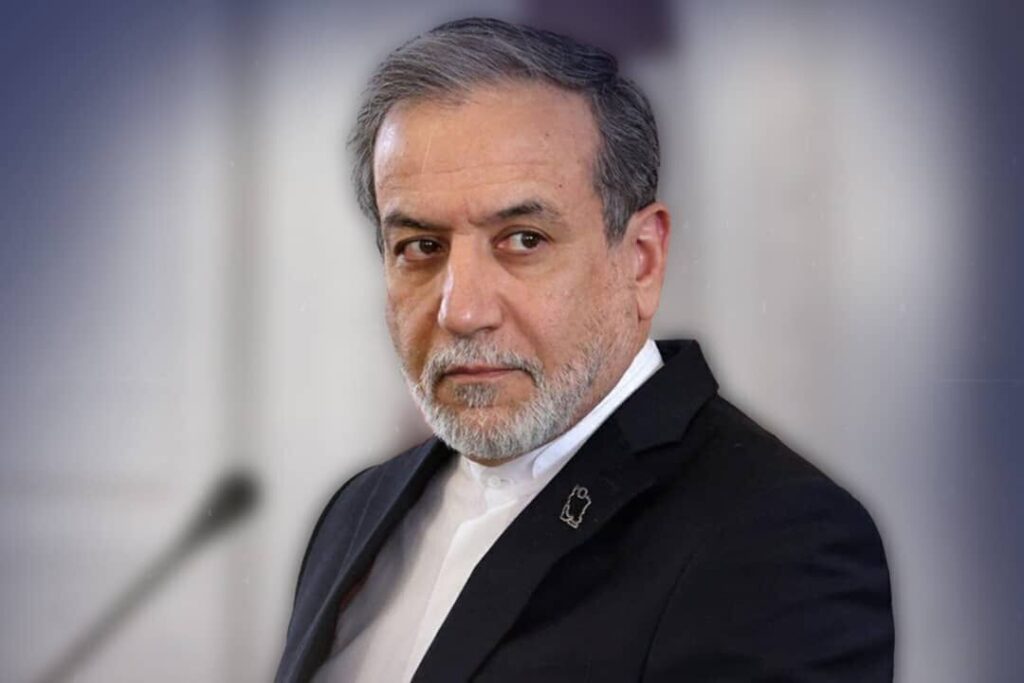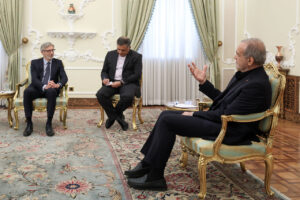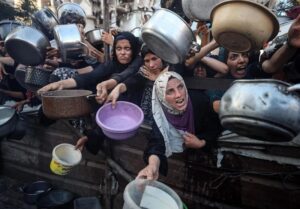Ceasefire Offers Turning Point for Lasting Peace and Regional Diplomacy in West Asia: Araghchi

Tehran, The Gulf Observer: Iranian Foreign Minister Abbas Araghchi has stressed that Iran’s acceptance of a ceasefire request concerning the Israeli-imposed conflict presents a vital new opportunity for comprehensive diplomacy, calling on the Islamic world to shift from short-term policies toward a vision of sustainable peace.
In an article published Tuesday by An-Nahar newspaper, Araghchi stated that West Asia stands at a historic crossroads—between the continuation of endless violence or the establishment of lasting peace. He called on the Islamic Ummah to prioritize collective action and long-term strategies aimed at ensuring regional stability, justice, and development.
Reaffirmation of Iran’s Regional Role
Araghchi underscored Iran’s decisive and active role in the Palestinian cause, highlighting that the country’s recent response to Israeli aggression within the occupied Palestinian territories has exposed the fragility of the so-called “invincible image” projected by the Zionist regime. He emphasized that Iran’s actions were based on Resolution 69/51, unanimously adopted by the Organization of Islamic Cooperation (OIC), framing Israeli attacks as acts of aggression and war crimes under international law.
He also noted the resolution’s call for the International Atomic Energy Agency (IAEA) to condemn attacks on Iran’s peaceful nuclear facilities and to report these violations to the United Nations Security Council.
Call for Islamic Unity and Strategic Dialogue
Drawing historical parallels with the 1969 Rabat Summit—held in the wake of the Al-Aqsa Mosque attack—Araghchi emphasized that the recent meeting of OIC foreign ministers has reactivated the spirit of joint Islamic action, calling for a unified dialogue free from political, sectarian, or linguistic divides.
He observed that a new Islamic discourse is taking shape, one rooted in realism and collective strength, with no member state excluded. Araghchi called for consensus on four key areas as the basis for regional diplomacy: shared security, regional stability, economic cooperation, and counterterrorism.
Ceasefire as a Diplomatic Opportunity
The minister described Iran’s acceptance of a ceasefire as a window for comprehensive diplomacy, but stressed that meaningful negotiations must be built on the dual foundations of security guarantees and justice.
He urged the UN Security Council, particularly influential members such as China, Russia, Brazil, Japan, and European states, to act decisively in compelling the aggressor to commit to nonviolence. He emphasized the need to legally formalize ceasefires, pointing to repeated violations by Israel in Gaza and Lebanon.
Araghchi reiterated Iran’s longstanding position on creating a nuclear-weapon-free Middle East, advocating for stronger regional trade agreements and development frameworks to ease tensions.
Justice and Accountability
Addressing the pursuit of justice, Araghchi highlighted the importance of implementing paragraph 2 of OIC Resolution 69/51, which demands condemnation of Israeli and U.S. attacks on Iranian nuclear facilities subject to IAEA safeguards. He called on the IAEA to move from statements to actionable measures.
He further proposed the establishment of an Islamic Human Rights Court, modeled on the European Court of Human Rights, as a mechanism for legal redress within the Islamic world. He encouraged the OIC, under Turkey’s current presidency, to form a preparatory committee to draft its founding statute.
Priority for Gaza and Lebanon
Araghchi stressed that a sustainable peace framework must address the urgent needs of Gaza and Lebanon, the regions most severely affected by Israeli aggression in the past year. He called for an immediate end to occupation and violence, coupled with humanitarian assistance and reconstruction support, as essential prerequisites for managing the broader conflict.
Shared Future Through Regional Cooperation
In conclusion, Araghchi reiterated that collective peace and stability in West Asia is not only attainable but necessary. He emphasized the critical role of joint cooperation, strategic unity, and shared destiny among Islamic nations in shaping a peaceful, secure, and nuclear-free region, highlighting Iran’s readiness to work with all stakeholders committed to justice and diplomacy.


